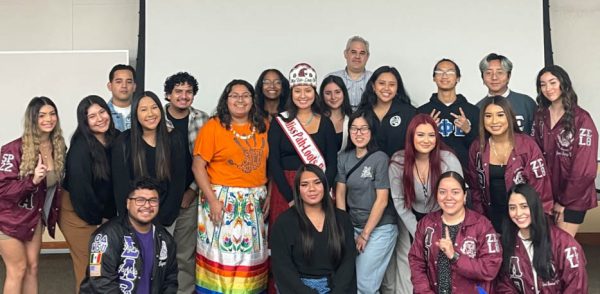Animal cruelty is an issue no matter the country or choice of meat
April 13, 2017
Most countries eat meat, although the chosen animals consumed and the way animals are treated varies from culture to culture.
Dogs and cats, as companion animals, are highly valued in the U.S., so most Americans could not fathom the idea of killing and eating them. However, in countries such as South Korea and Vietnam, it is the norm to eat dog meat.
All animals have feelings and are more intelligent than we may think. And just like humans, they don’t want to die. So what makes a society choose to consume and value certain animals over others?
Alice Ma, a WSU Dining Services dietician, became interested in vegetarianism when she learned about the sustainability and environmental benefits of the lifestyle. Once she was exposed to the animal cruelty aspect of veganism, she decided to eliminate all animal products from her diet over the course of about five months.
Ma is from a culture where, more often than not, meat is served and cooked so the consumer can still make out the kind of animal they’re about to eat. The difference from Chinese and American food culture is the ability to know exactly what part of the animal you’re about to eat in China – and in addition, no part of the animal is wasted, Ma said.
In comparison, meat in America is mass produced, and most of the time you have no idea what exactly you’re eating – which, in turn, makes us more distant from the food we eat on a regular basis. And we absolutely do not eat every part of an animal like other places in the world.
Take hot dogs or chicken nuggets, for example. Who really knows what those are made of?
Social psychologist Melanie Joy is the founder of what she has labeled an invisible belief system: carnism, which Joy defines as an ideology that conditions people to eat certain animals.
The reason carnism is invisible is people don’t often realize they have the choice to eat animals, but instead eat meat because that’s how it has always been, when in reality this choice stems from belief. Carnism is also invisible because it is more mainstream and widely accepted compared to vegetarianism and veganism, Joy wrote.
In her video called, “The Secret Reason We Eat Meat,” Joy breaks down individuals’ justifications for meat consumption into three “N” categories: Natural, Necessary and Normal.
The meat consumption system is partly responsible for these justifications, Joy emphasized in the video.
“The system uses defense mechanisms to get rational, humane people to justify and get them to participate in what they otherwise would consider inhumane and cruel,” Joy said. “Carnistic bias is engraved in society.”
Denial is an apparent example of the defense mechanisms people use to justify animal consumption, meaning the truth is hidden from consumers, Joy argued.
Another defense mechanism is the invisible victims involved. The victims are not only the animals kept from society’s consciousness that inhumanely suffer, but also the humans who eat the meat.
Heart disease, high cholesterol and many other deadly diseases common in America today are linked to the consumption of animal products. When you follow through with a plant-based diet, these diseases are reversed, Joy said.
There is plenty of evidence and research to prove these improvements in health. Simply being aware of what you’re eating and educating yourself and others can make a significant difference and already has, Joy wrote.
“Carnism is promoted by all major institutions: government, law, medicine, education,” Joy wrote.
We don’t call meat by what it is. Instead of dead pig or dead cow, we use terms such as pork and beef, Ma said.
“We call them by something else and that really disassociates that guilt piece of it being actually a live thing,” Ma said.
Animals live a more humane life in other countries in comparison to America when it comes to the animals we eat, Ma said. This is the sad reality for countless compassionate and sensitive animals that are exploited every day.
Like Joy argued, awareness is already a huge step in the right direction and these small changes in attitudes and norms make a huge impact.
I am not saying everyone needs to stop eating animals all at once, or that people who eat meat are terrible. Rather, I am saying more of us could take a moment to reflect on this aspect of society and consider the harm and cruelty involved in American factory farms.
Latisha Jensen is a sophomore journalism and media production major from Bellingham. She can be contacted by [email protected].
















